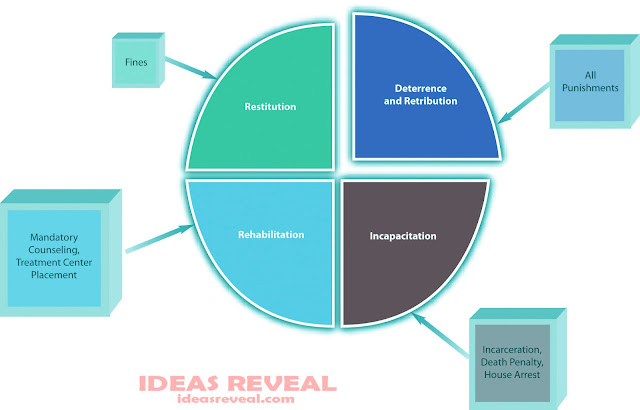The five purposes of law are:
·
Maintaining
social order and stability
·
Protecting
individual rights and freedoms
·
Resolving
disputes and conflicts
·
Promoting
economic growth and development
·
Administering
justice and fairness.
Maintaining
Social Order And Stability
refers to the role of law in establishing and
enforcing rules and regulations that help maintain a stable and orderly
society, promoting public safety and security, and preventing chaos and
disorder.
Additionally, maintaining social order and
stability also involves the protection of the community and its institutions
through the enforcement of criminal laws, maintaining public health and safety
through environmental and consumer protection laws, and ensuring the functioning
of key systems such as the economy, politics, and education through regulation
and oversight. It also involves the preservation of cultural and social norms
through the enforcement of moral and ethical codes, as well as promoting social
cohesion and stability through the protection of fundamental human rights.
Protecting Individual Rights And
Freedoms
refers to the role of law in guaranteeing and
defending the basic civil liberties and human rights of individuals, such as
freedom of speech, religion, assembly, privacy, and due process. This purpose
of law aims to ensure that the individual is protected from harm or
infringement by others, as well as from arbitrary actions by the state or
government. This helps to promote a democratic and just society where
individuals are free to exercise their rights and live without fear of
interference or oppression.
Resolving disputes and conflicts
refers to the role of law in providing a fair
and impartial means for resolving conflicts and disputes between individuals,
organizations, or between the state and citizens. This includes the
establishment of a legal system that allows parties to seek resolution through
negotiation, mediation, arbitration, or litigation. The purpose of resolving
disputes and conflicts through the legal system is to ensure that justice is
served, rights are protected, and to provide a peaceful means for resolving
conflicts, reducing the need for violence or other forms of coercion. This
helps to maintain social stability, restore relationships, and promote fairness
and justice in society.
Promoting Economic Growth And Development
refers to the role of law in creating an
environment that encourages economic growth and development, by establishing
clear rules for economic activity, protecting property rights, promoting
competition, and providing a stable framework for investment and trade. This
includes regulation of markets and industries, protection of intellectual
property, and the establishment of a legal framework for contract and commercial
law. The purpose of promoting economic growth and development through the law
is to provide businesses and individuals with the certainty and stability they
need to invest, innovate, and grow, leading to increased prosperity and a
higher standard of living for society as a whole.
Administering Justice And Fairness
refers to the role of law in ensuring that
justice is served and that individuals are treated fairly and equitably under
the law. This includes the administration of criminal justice, the protection
of individual rights, the resolution of disputes, and the provision of remedies
for victims of injustice. The purpose of administering justice and fairness is
to ensure that individuals and society as a whole are held accountable for
their actions, and to provide a means for redressing wrongs and restoring a
sense of balance and fairness to the legal system and society. This helps to
promote stability, security, and trust in the legal system and in society as a
whole.
Additionally, administering justice and
fairness involves the impartial and unbiased interpretation and application of
the law, providing equal protection and access to the legal system for all
individuals regardless of their status, race, religion, or other factors. It
also involves the protection of vulnerable and marginalized groups, such as
children, the elderly, and individuals with disabilities, through the
establishment of specialized laws and institutions. Administering justice and
fairness requires a commitment to impartiality, transparency, and
accountability, ensuring that the legal system is a trusted and respected
institution that serves the needs of all members of society.

